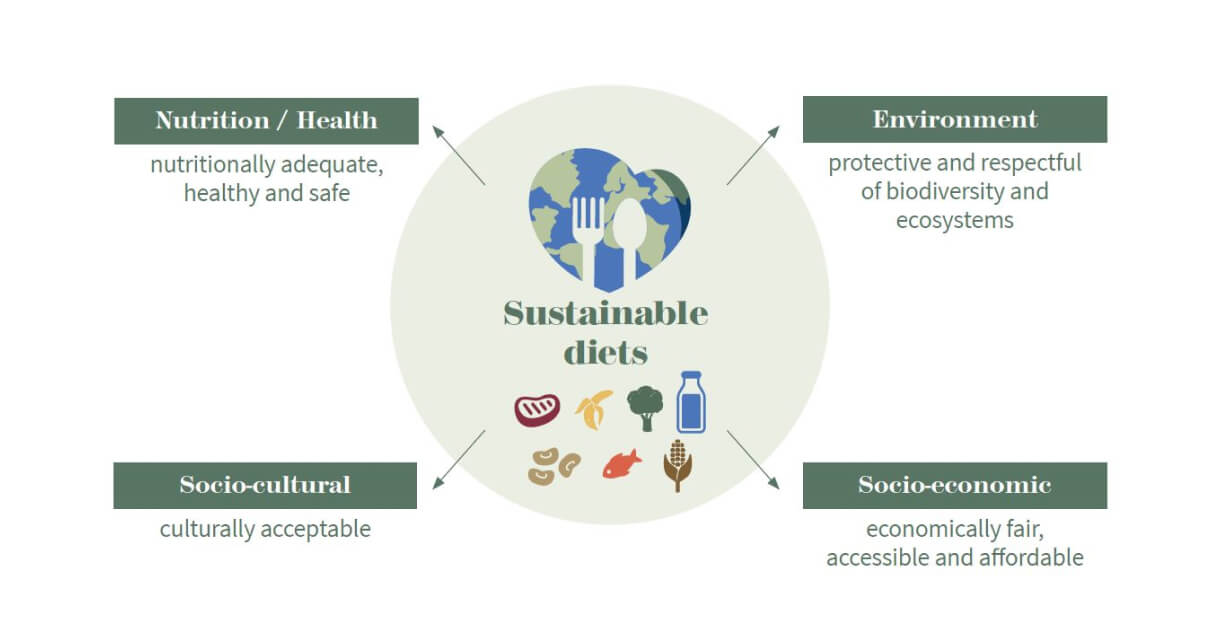Milk and dairy foods have an important role in achieving healthy and sustainable diets in Europe
Milk and dairy foods have been enjoyed as part of our European diets and food culture for generations. Today they are as relevant as ever.
They are naturally rich sources of a wide range of nutrients including calcium, protein, phosphorus and vitamin B12 and make a significant contribution to nutrient intakes and diet quality. They are recognised as an important part of dietary guidelines across Europe and as one of the components of sustainable dietary patterns.
Milk and dairy foods are versatile and offer their nutritional and health benefits in an enjoyable, convenient and affordable way.
Given their rich nutrient content, it is not surprising that milk and dairy foods make an important contribution to the nutritional quality of our diets in Europe.
They are the main calcium-providers supplying between 40% – 70% of the calcium intake. Dairy also makes important contributions to the intake of many other nutrients including high-quality protein, vitamins B2, B12, vitamin A, phosphorus, iodine, zinc and potassium.
Some of these nutrients are already suboptimal in our diets, particularly for teenage girls and young women, making dairy’s contribution all the more important.


Milk and dairy foods naturally contain a variety of nutrients within complex physical structures – from liquid milk to the gel–like structure of yogurt to solid cheese. The interaction of these unique combinations of nutrients and structure combine to produce the overall effect of dairy foods on health.
This is known as the Dairy Matrix Effect. It has been likened to the difference between individual notes of music played separately compared to coming together to form a chord. It’s a new way of thinking about the health effects of food that goes beyond individual nutrients.
The latest science-based information for health and nutrition professionals on the role of dairy foods as part of healthy, sustainable diets. With summaries and presentations from our EMF symposia, webinars and other events, and scientific overviews of dairy and health topics.
Along with the well-known roles of calcium for bones and protein for muscle, milk and dairy nutrients contribute to other important functions in the body – from normal red blood cell formation to energy release, immune function and neurotransmission.
Dairy foods are important calcium-providers in European diets. In addition to the growth and development of children’s bones, and bone and teeth maintenance in adults, calcium also contributes to normal blood clotting, neurotransmission, muscle function, releasing energy from food, and cell division.
The high-quality protein in dairy foods can contribute to muscle growth and maintenance. It’s not always appreciated that protein is needed for bones too, contributing to normal bone growth and development in children and bone maintenance in adult life.
Like calcium, phosphorus in dairy foods can contribute to normal growth and development of bone and the maintenance of normal teeth. It is also needed for the function of cell membranes and releasing energy from food.
Both milk and cheese are good sources of this important B vitamin, which isn’t found naturally in plant foods. Vitamin B12 contributes to normal immune function along with red blood cell formation and the process of cell division.
It’s needed for normal psychological function too and contributes to reducing feelings of tiredness and fatigue.
Milk is rich in vitamin B2, which is also known as riboflavin. It’s needed for several important functions in the body including contributing to the maintenance of normal vision, skin, red blood cells and functioning of the nervous system.
It’s involved in normal psychological function too and contributes to reducing feelings of tiredness and fatigue.
In some European countries milk is an important provider of iodine. Some groups in the population don’t get enough iodine yet it contributes to the normal production and function of thyroid hormones, nervous system and cognitive function and skin health, along with normal growth in children.

Source: FAO, Biodiversity and sustainable diets, 2010
A sustainable diet is a balance between nutrition, environment, cultural and economic aspects. Although there is sometimes a focus on environmental impact, all four dimensions are equally important. If, for example, choosing foods with a lower carbon footprint, results in not meeting nutrient needs, is too expensive or not culturally acceptable, it is not considered sustainable.
Nutrient-rich milk and dairy foods can play a pivotal role in helping to optimise a sustainable diet by providing key nutrients, some of which are challenging to obtain from other sources, including from plants. Dairy can also help to make a sustainable diet acceptable and affordable. At the same time, the dairy sector is committed to continue to lower the environmental impacts of milk and dairy foods.
Many studies have shown that dairy does not have to be reduced in sustainable European diets.
Follow us on LinkedIn
The European Milk Forum is a non-profit organisation which plays a vital role in driving the strategic development, management, and exchange of integrated information initiatives on milk and dairy across Europe.
Today, nine organisations have joined the EMF: Austria: www.ama.at, Belgium: www.vlam.be, Denmark: www.danishdairyboard.dk, France: www.cniel.com, Germany: www.initiative-milch.de , Ireland: www.ndc.ie, Northern Ireland: www.dairycouncil.co.uk, Norway: www.melk.no and Switzerland: www.swissmilk.ch
The EMF participates in the EDA-network.
This website has been designed and produced by the EEIG EMF for the exclusive benefit of its members.
© European Milk Forum 2025
© European Milk Forum 2025 | All Rights Reserved
Designed & Developed by Rooftop Twenty Two